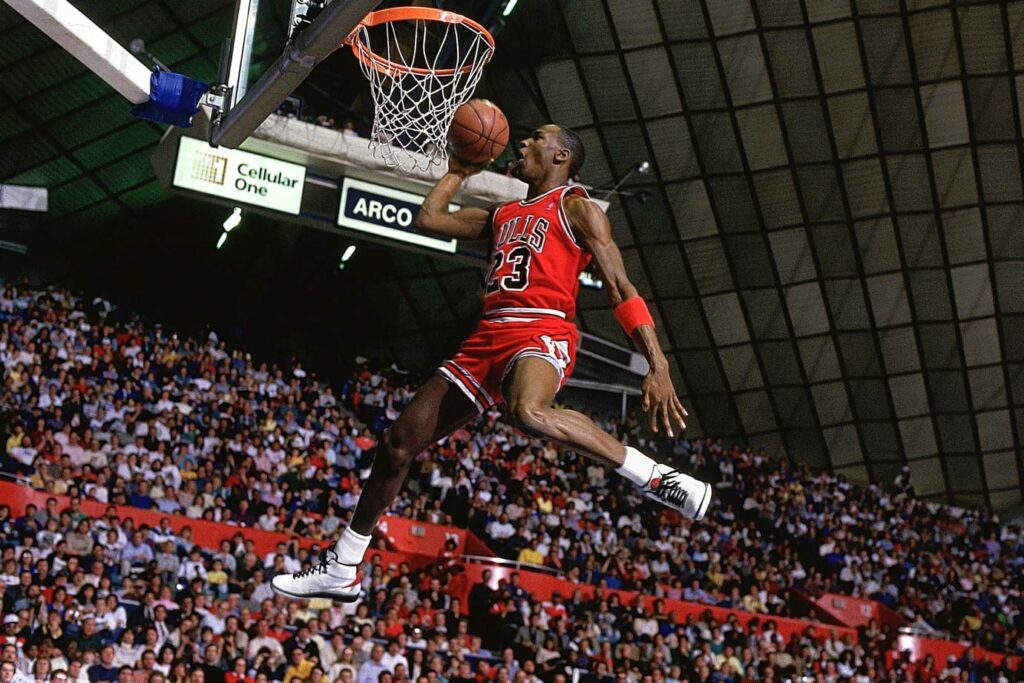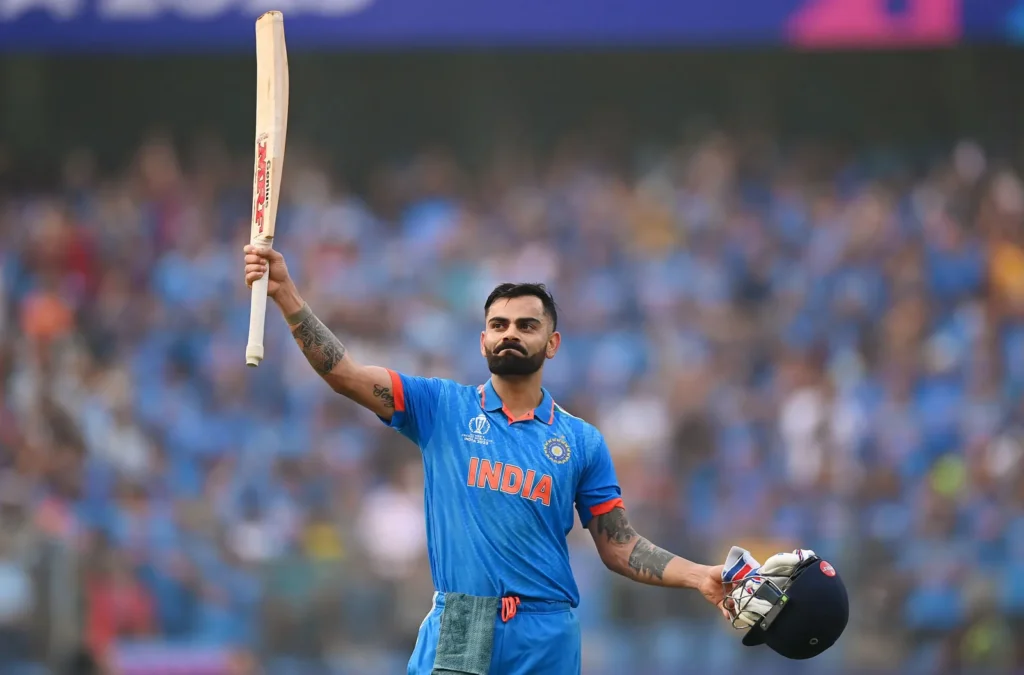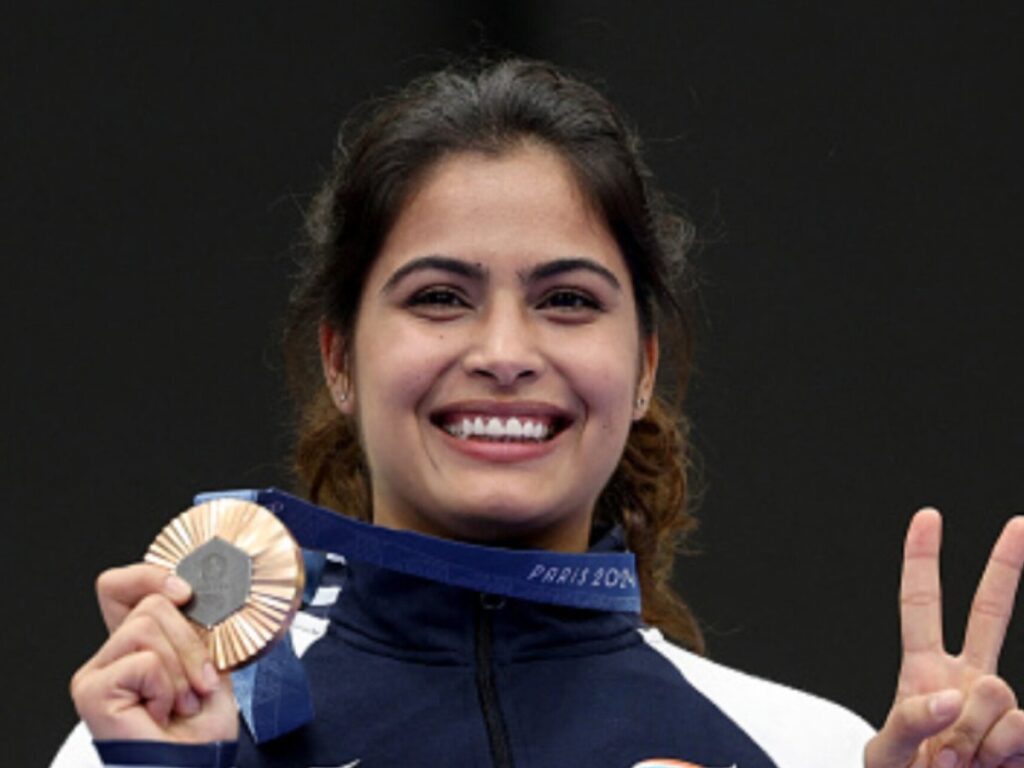This article has been co-authored by Mr. Tarsh Khanna and Mr. Aniket Rout
Introduction
Manu Bhaker, a 22-year-old shooter, secured India’s first medal in the 2024 Paris Olympics after winning bronze in the Women’s 10m Air Pistol event on Sunday. Congratulatory messages started pouring in from all around the country as she finally ended India’s medal drought in shooting since the 2012 London Olympics. However, among the waves of celebrations and outpouring of well-wishers, there were some who used the opportunity to their own advantage, in an act which can be termed as “moment marketing”.
Several brands, which were not associated with the athlete either by sponsorship or endorsement, used photos and videos of Manu Bhaker in order to congratulate her while also marketing themselves in the advertisement. Neerav Tomar, the MD of IOS Sports and Entertainment, which manages Bhaker, has come out with a warning to all the non-sponsor brands that they will be receiving legal notices for infringing the personality rights of the athlete. “Almost two dozen brands which are not associated with Manu, have released congratulatory ads on social media with her images and their brands. This is not allowed legally, and we are serving legal notices to these brands”, he stated.
Some of the brands which jumped on the hype train include LIC, FIITJEE, Bajaj Foods, Radha TMT, Oakwood International School, Parul Ayurved Hospital, Xtrabrick Realtors, Apricot Bioscience, Kineto and Praneet Group. According to a report by the Economic Times, emails sent to some of these entities did not elicit a response whereas others could not be reached for comments.
Notably, this is not the first time such an occurrence has taken place. After badminton player PV Sindhu clinched the bronze medal at the 2020 Tokyo Olympics, becoming only the second Indian athlete to win two individual Olympic medals, several brands took the opportunity to get mileage by congratulating the athlete using her photos, thus, potentially creating an image of a sponsorship or an endorsement. In response to these instances, Baseline Ventures, the agency which managed PV Sindhu, took more than 20 such brands to court, with claims reaching up to Rs 5 crore from each such brand. A similar instance had taken place a few days before Sindhu’s medal when weightlifter Saikhom Mirabai Chanu won a silver medal and expressed her desire to eat pizza in the post-match interview. Immediately after that, Domino’s Pizza pledged free pizzas for life to Chanu, however, they were quick to acknowledge the unauthorized use of her name and made a separate digital activation deal with the weightlifter.
What are Personality Rights?
Personality rights refer to the rights of the individuals to regulate the commercial use of their identity, which can include their name, image, voice, likeness, and other unique identifiers. Broadly speaking, there are two distinct ways in which an individual can choose to protect their personality rights; firstly, the right to protect one’s image from being exploited commercially in an unauthorised manner, which is usually called publicity rights, and secondly, the right to privacy which recognises an individual’s right to be left alone. In the context of sportspersons and athletes, the disputes regarding personality rights are generally of the former kind.
Sports is one of the biggest forms of entertainment in the world. With the advent of technology, the ever-increasing accessibility of various sporting events has made it a billion-dollar industry. Many sports persons have achieved celebrity status in their respective fields. Thus, it is not a surprise that mere association of a brand or an organisation with a reputed sportsperson can boost the image and reputation of the said entity. Consequently, the instances of sportsperson’s names or images being used without their consent in order to promote various products or services have increased tremendously. This results in a commercial loss not only for the sportsperson but also for the brands and organisations which have invested in the sportsperson through sponsorships or endorsements. On the other hand, undeserved benefits are earned by such companies without even paying the necessary royalties or sponsorship fees. Therefore, the instances of sportspersons coming out to protect their personality rights have massively increased in the last few decades.
Disputes arising from infringement of personality rights of athletes have been quite commonplace in the rest of the world. One of the most notable cases involves the legendary basketball player Michael Jordan. In Jordan v. Dominick’s, the claim by Jordan was against an advertisement for Dominick’s, a major supermarket chain in Chicago at the time. The advertisement featured the Dominick’s name, its logo, a picture of its “Rancher’s Reserve” steak, and a coupon. Additionally, it included Michael Jordan’s name, his famous number 23, the black and red colours of the Chicago Bulls, and a silhouette resembling the Jumpman logo associated with Jordan’s brand at Nike Inc. The purpose of filing the case was to secure Jordan’s right to control and determine who uses his identity and how it is used. The jury allowed the claim and awarded 8.9 million dollars as damages. Jordan ended up donating the entire amount to various charities in Chicago, thus confirming that his sole intention was to maintain complete control over the use of his identity.

Another case involved the Brazilian superstar Pele. In Pele IP Ownership LLC v. Samsung Electronics Co. Ltd., a claim was brought by the entity which owned the image rights of the legendary footballer Pele against a Samsung advertisement which featured an individual who was a complete look-alike of Pele. The advertisement featured a Samsung TV along with a football player attempting a scissor or a bicycle kick, something which Pele is very famous for. The parties ended up reaching a settlement several years after the initiation of the case. The main takeaway from this case is that companies cannot circumvent claims of unauthorized use of personality rights by imitating a certain aspect of an individual’s identity. Over the years, the US courts have sustained claims of misappropriation based on the use of lookalikes, soundalikes and other unique identifiers.
Legal Implications in Manu Bhaker’s Case
There are various legal remedies available to Manu and her agency, as the unauthorised marketing campaigns undertaken by certain brands after Manu secured India’s first medal in this Olympic Games seem to have massive legal implications under different laws and regulations. Some of the implications have been discussed below.
- Olympic Games Rules
Like every other edition, the 2024 Paris Olympics had come up with a detailed “Brand Protection” Guidelines which specifically addressed the intellectual property rights of the Olympic Games as well as the athletes taking part in it. These guidelines, which are based on the Olympic Charter released by the International Olympic Committee (IOC), elaborately talk about the importance of protecting the intellectual properties related to the Olympic Games while also laying down legal provisions against counterfeiting, ambush marketing and unauthorised use.
According to the guidelines, any attempt to convey, in any form, an association with an athlete or with the Olympic properties (symbol, emblem, slogan, medal etc.) for commercial or representational purposes by an entity which is not associated with 2024 Paris Olympics is strictly prohibited and is punishable under French law. Furthermore, the IOC also released advertising guidelines which impose strict conditions on brands that sponsor the athletes regarding the way they advertise their athletes during the “blackout period”, which started on July 18 and will end a few days after the closing ceremony. During the “blackout period”, even the personal sponsors of the athletes are heavily restricted from using terms or symbols related to the Olympic Games in their advertisements.
Therefore, the entities which have used Manu Bhaker’s name, images, and other unique identifiers in an unauthorised manner are clearly in violation of the “Brand Protection” guidelines released by the IOC and can be subjected to punishment under the French law.
- ASCI Code
The Advertising Standards Council of India (ASCI) was established in 1985 as a self-regulatory body dedicated to regulation of advertisements, in order to ensure the protection of consumer interests. ASCI has developed “The Code For Self-Regulation of Advertising Content in India” to make sure that the advertisements are legal, honest, decent,
truthful, and not hazardous or harmful, while observing fairness in competition.
Chapter 1 of the ASCI Code contains the following provision:
“Advertisements shall not, without permission from the person, firm or institution under reference, contain any reference to such person, firm or institution, which confers an unjustified advantage on the product advertised or tends to bring the person, firm or institution into ridicule or disrepute. If and when required to do so by The Advertising Standards Council of India, the advertiser and the advertising agency shall produce explicit permission from the person, firm or institution to which reference is made in the advertisement.”
Thus, the advertisements released by such brands without prior permission of Manu Bhaker are clearly in violation of the ASCI Code as they are attempting to exploit the lack of knowledge of the consumers by misleading them into believing that they are sponsors of the athlete.
The Trademark Act 1999 does not provide for the exclusive protection of personal or image rights. However, Section 2 (m) of the act includes ‘names’ in its definition of a ‘trademark’, thus meaning that the celebrities can legally register their names as trademarks to avoid misuse. Hence, an athlete can register their name, image, signature or other unique identifiers associated with them as a trademark. Following that, if any entity uses a registered trademark of the athlete without prior authorization, the athlete can take legal action under the Trademark Act for infringement, as such unauthorized advertising or endorsements have a direct effect on the athlete’s personality rights.
Several Indian athletes, including cricketers like Sachin Tendulkar, Virat Kohli, and MS Dhoni, have registered their names as trademarks to protect their identity. PV Sindhu, however, has faced challenges in her legal battles against moment marketing. Although Baseline Ventures, which manages Sindhu, took more than 20 brands to court, the outcomes have varied, with some cases resulting in settlements and others still pending.Under the Copyright Act 1957, the term “performer” defined under Section 2 (qq) can be interpreted such that a sportsperson is also considered a “performer” for the purposes of the act. Even though the act does not mention ‘personality rights’ prima facie, some sections in the act can be helpful as a remedy for violation of personality rights. For instance, Section 38, 38A, and 38B provide for exclusive performer’s right, which can be used to prevent unauthorized marketing of one’s performance. The case of Titan Indus. Ltd. v. Ramkumar Jewellers is an example where celebrities have been successful in defending against infringement of personality rights. In this case, billboards were set up by the defendant showing Amitabh Bachchan and Jaya Bachchan, two Bollywood stars, endorsing their jewellery shop. The plaintiffs, who were assigned the personality rights of the two actors, brought a claim against the infringement of personality rights and claimed passing off damages. The Court held that the plaintiffs were the actual owners of the copyright in question and that the dishonest use of the images of the two actors by the defendant in order to promote their shop amounts to infringement of copyright rights.

Therefore, the agency which manages Manu Bhaker and is responsible for the use of her unique personal identifiers, can file claims against such advertisements under the copyright laws of India.
- Legal Precedents in India
Even though the statutes do not explicitly provide for the protection of personality rights of famous individuals, the Indian courts have looked beyond the statutes and have delivered certain key judgments which have laid down the foundation for protection of personality rights.
In the case of Jackie Shroff v. The Peppy Store & Ors., the Hon’ble Delhi High Court issued an interim order prohibiting various entities from using Jackie Shroff’s name, voice, or image for commercial purposes without his consent. This ruling massively strengthened the protection of personality and publicity rights, particularly for celebrities, by stressing on the requirement of obtaining consent for the commercial use of unique personal identifiers. The court acknowledged Shroff’s public stature and highlighted the importance of balancing others’ freedom of expression with Shroff’s rights to his personality and publicity.
Another example can be seen in the case of Anil Kapoor v. Simply Life India and Ors., where the Hon’ble Delhi High Court broadened the concept of personality rights to include unique features like mannerisms, gestures, dialogues and signatures. This expansion aimed to protect the individual’s reputation and fame, ensuring that their public image is not tarnished by unauthorized use of such features.
One notable case is DM Entertainment v. Baby Gift House, where the Delhi High Court recognized the rights of famous personalities over their names and images. In this case, the court ruled in favour of Daler Mehndi, a popular Indian singer, preventing a company from using his name and likeness without permission. The court held that such unauthorized use could mislead the public into believing there was an endorsement, thereby infringing on the personality’s rights.
Similarly, in Tata Sons Ltd. v. Ramadasoft, the court reinforced the protection of well-known trademarks, which can extend to personality rights if an individual’s name or image is used in a manner that suggests endorsement or affiliation. This case emphasizes that even implied endorsements through unauthorized use can be legally challenged.
Therefore, these legal precedents further strengthen the case of Manu Bhaker and the recognition of her personality rights, and their infringement, meaning that the athlete’s agency can pursue litigation against the brands which use her name and image without prior permission.
Remedies Available to Manu Bhaker
Given the legal framework and precedents discussed above, Manu Bhaker and her agency have several remedies at their disposal:
- Cease and Desist Notices: Manu Bhaker’s legal team can issue cease and desist notices to the brands that have used her name, image, or likeness without authorization. These notices would demand the immediate removal of the infringing advertisements from all platforms, including social media, print, and digital media. Failure to comply with such orders could result in further legal action.
- Injunctions: If the cease and desist notices are not heeded, Bhaker’s legal team can seek injunctions from the court to restrain the infringing brands from continuing their unauthorized use. An injunction is a powerful legal tool that can stop the misuse immediately, preventing any further damage to Bhaker’s reputation and commercial interests.
- Damages and Compensation: Manu Bhaker can also seek monetary compensation for the unauthorized use of her identity. This compensation would account for the commercial value of the endorsement, the damage caused to her existing sponsorship agreements, and any reputational harm suffered. In previous cases involving sports personalities, courts have awarded substantial damages to protect the commercial rights of athletes.
- Public Apology and Retraction: In addition to monetary compensation, Bhaker’s agency can demand a public apology from the infringing brands. A public retraction of the unauthorized advertisements, along with a clear statement that the brand was not associated with Bhaker, can help mitigate any potential damage to her reputation.
- Criminal Proceedings: In certain cases, where the unauthorized use of a sportsperson’s identity is deemed to be deliberate and malicious, criminal proceedings can be initiated under applicable laws. This could involve charges of fraud, misrepresentation, and other relevant offenses, leading to penalties or imprisonment for those responsible.
Conclusion
As athletes like Bhaker continue to achieve greatness on the world stage, it becomes vital to ensure that their rights to control their name, image, and likeness are safeguarded adequately. By using her identity without permission, these entities are not only undermining her accomplishments but also setting a bad precedent for others to follow, which can be detrimental to other athletes whose hard-earned reputations will be at risk of being exploited without their consent. The legal remedies available under the Olympic Games Rules, ASCI Code, and Trademark and Copyright Acts, combined with supportive judicial precedents, offer a strong foundation for holding infringing parties accountable. Protection of personality rights is not just about safeguarding the image of an individual; it is also about maintaining the dignity, integrity, and value of their contributions to the society. Stringent enforcement of these rights can ensure that Manu Bhaker and other emerging athletes remain in control of their own narrative, thus allowing them to benefit.

